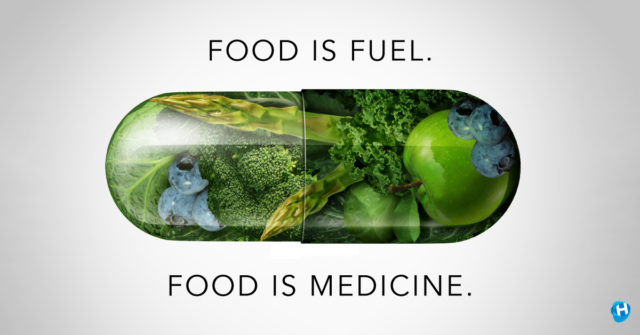We’ve all heard it: “You are what you eat.” Although it is a cliche, the idea behind the saying is that what you eat directly correlates with your body’s health.

With master’s degrees in nutrition science and public health, Cynthia Sass consults professional athletes to make sure what they eat is going to improve their physical fitness, build their strength, and enhance their endurance. As the sports nutrition consultant to the New York Yankees and the Brooklyn Nets, Sass puts it like this:
“Nutrients from the foods you eat provide the foundation of the structure, function, and integrity of every little cell in your body, from your skin and hair to your muscles, bones, digestive, and immune systems,” Sass said. “Transforming your diet can affect your mood, energy, health, performance, or appearance.”
Just as dietary choices can have a positive effect on athletes’ bodies, certain foods can help all of us better manage chronic illnesses, improve metabolism, cleanse the skin, and prevent illnesses and diseases.
The concept of food having the power over such things has constructed the food-as-medicine movement, which teaches that food and dietary changes specific to every patient can drastically increase quality of life.
Dr. Robert Graham, a Harvard-trained physician who is board-certified in internal and integrative medicine, is a leader of the food-as-medicine model. He has found that, while there is no ideal diet for everyone, cutting down on or eliminating processed foods can be highly beneficial regardless of a person’s age or health status, according to the American Board of Physician Specialties.
“Food plays a major role not only in the treatment of existing diseases but also in health promotion and disease prevention,” Graham told Fresh Medicine.
According to a new study released in London, diet can be directly linked to Alzheimer’s disease. Following a heart-healthy diet can reduce cognitive impairment by up to 35 percent. The heart-healthy diet used in the study consisted of whole grains, leafy green vegetables, nuts, berries, beans, and fish.
In April, the Food as Medicine Philadelphia Conference educated people about the extraordinary power of food and how they can use it to reverse and prevent chronic illness, including gastrointestinal diabetes and cardiovascular disease.
The food-as-medicine trend also has emerged in Pittsburgh, where Allegheny Health Network has opened a healthy food center at West Penn Hospital to provide for patients with health issues who can’t afford nutritious foods. The new center provides free meals once a month, which, in turn, is helping patients with chronic illnesses reap the benefits of food as medicine.
Similarly, Geisinger’s Fresh Food Farmacy also uses the food-as-medicine model. Specifically, the food farmacy uses proper education, support, and nutritional foods to change the lives of their patients to help them better manage their diabetes—giving them a unique type of medicine that couldn’t come from a pill bottle. Through the combination of food, education, and technology, Geisinger is mixing the best ingredients to positively impact patients and their families.
We often use food for stress relief or to satisfy a rumbling in our stomachs, but it’s time we change our relationship with food. When we start seeing food as fuel and medicine for improving our bodies, it’s easier to turn away from the unhealthy snacks and processed foods to instead choose foods that will make us healthier, happier, and more likely to avoid diseases in the future.
